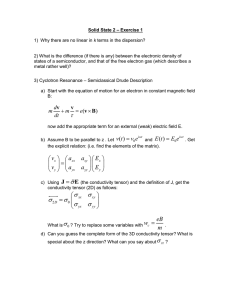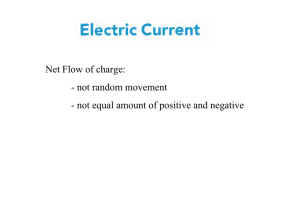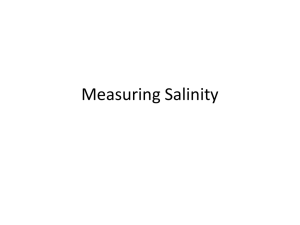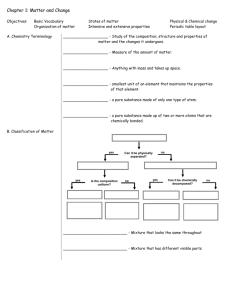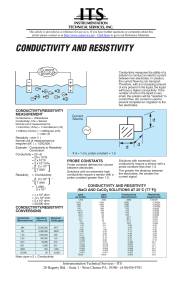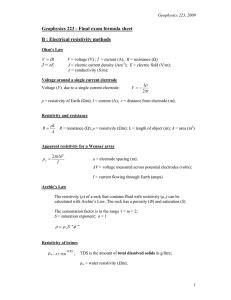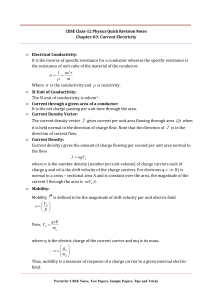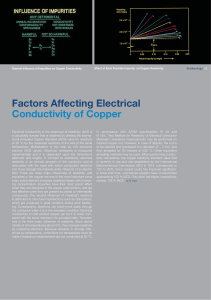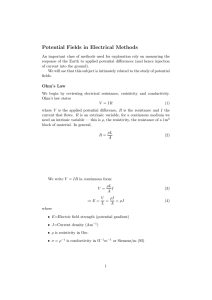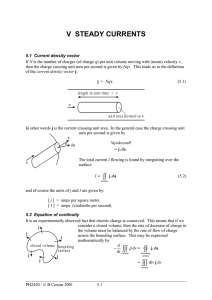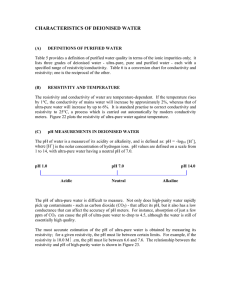Document 13644621
advertisement
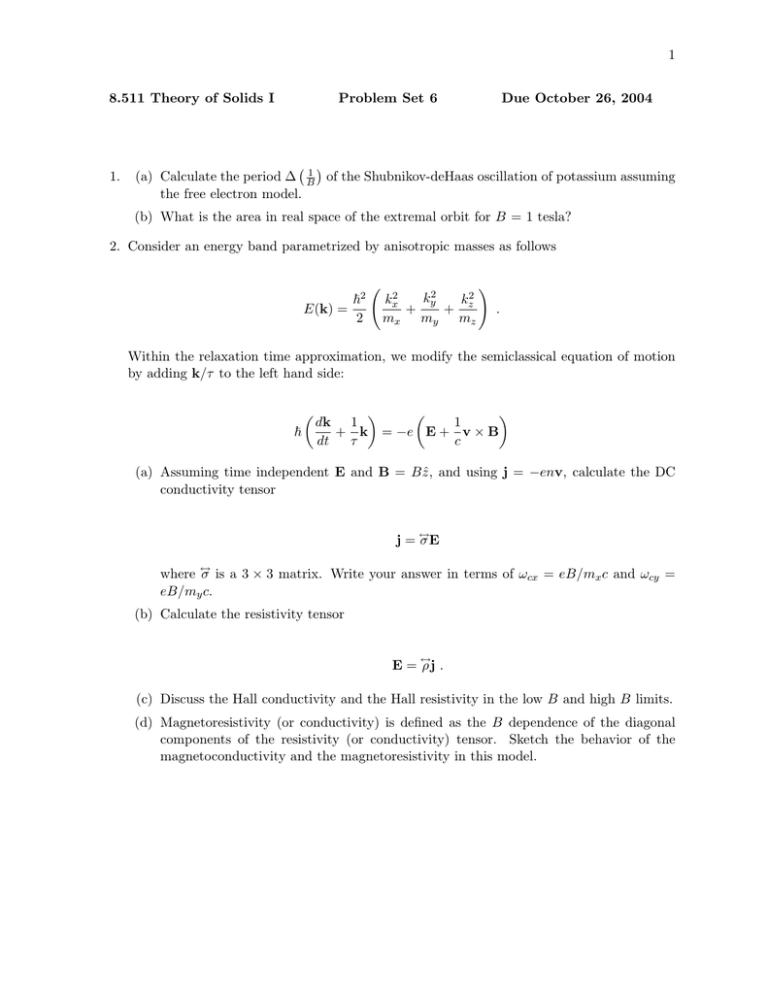
1 8.511 Theory of Solids I 1. Problem Set 6 Due October 26, 2004 � � (a) Calculate the period Δ B1 of the Shubnikov­deHaas oscillation of potassium assuming the free electron model. (b) What is the area in real space of the extremal orbit for B = 1 tesla? 2. Consider an energy band parametrized by anisotropic masses as follows �2 E(k) = 2 � ky2 kx2 k2 + + z mz mx my � . Within the relaxation time approximation, we modify the semiclassical equation of motion by adding k/τ to the left hand side: � � � � � dk 1 1 + k = −e E + v × B dt τ c (a) Assuming time independent E and B = Bẑ, and using j = −env, calculate the DC conductivity tensor j=↔ σE where ↔ σ is a 3 × 3 matrix. Write your answer in terms of ωcx = eB/mx c and ωcy = eB/my c. (b) Calculate the resistivity tensor E=↔ ρj . (c) Discuss the Hall conductivity and the Hall resistivity in the low B and high B limits. (d) Magnetoresistivity (or conductivity) is defined as the B dependence of the diagonal components of the resistivity (or conductivity) tensor. Sketch the behavior of the magnetoconductivity and the magnetoresistivity in this model.
